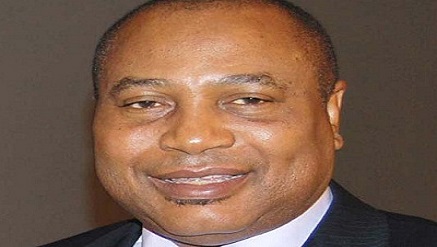Telecom
Invest N1.7Bn Fines on Infrastructure to Improve QoS- Subscribers

Telecommunications subscribers in the country have asked the government to invest the fines imposed on telecom service providers in the provision of more telecom infrastructure to arrest the worsening quality of service provisioning.
Service providers have failed to provide quality service despite having paid over N1.7 billion fines in the last two years for failing to meet Nigerian Communications Commission’s (NCC) minimum standard, including the Key Performance Indicators (KPIs).
As a result subscribers have continued to suffer from poor quality of service ranging from incessant drop calls, poor voice clarity, inability to make successful calls, to inability to recharge phones among others.
Deolu Ogunbanjo, national president, National Association of Telecommunications Subscribers (NATCOMS), said that services will keep falling because government has not done the needful.
“Unfortunately, NCC is not doing the needful. Sanctioning or imposing fines on operators without investing the money in the provisioning of telecom infrastructure such as building of additional base stations and so on will not solve the problem of poor quality of service” he added.
Dr. Omobola Johnson, minister of Communications Technology while agreeing that there was short fall in the quality of services provided by the operators, however, enjoined the operators to increase the number of installed infrastructure as a way to address the issue.
“There is a link between infrastructure and quality of service, but most people do not understand this. We do not have enough telecoms infrastructure in the country.” She stated during a recent visit to Lagos.
According to her, the 25,000 base stations currently spread across the country are serving over 130 million subscribers and are not enough.
“Since the infrastructure is not enough, we therefore need more of it and operators should not be discouraged from building additional infrastructure.”
Nodding in agreement, Dr. Eugene Juwah, executive vice chairman, NCC, decried the low infrastructure build out.
Juwah said that in Abuja, the nation’s capital for instance, that there is no additional infrastructure in the last seven years.
Defending the operators, Akinwale Goodluck, corporate services executive, MTN Nigeria, noted that no network sets out to provide poor quality of service (QoS) as most service disruptions are caused by challenges beyond the control of service providers.
Goodluck, who spoke at a recent Telecoms Consumer Parliament of the NCC, said that strong winds and heavy rainfall in 2014 have resulted in a disruption of service to a large number of subscribers across the country.
He said the closure of Base Transceiver Stations (BTS) of service providers by some state governments in a bid to collect rents and levies also contributed to the poor quality of service being experienced by subscribers.
Saleh Odeh, a telecom subscriber, expressed sadness at the blame game and urged the government to come up with policies that will compel operators to provide acceptable level of services or be severely punished.
Telecom
MTN Nigeria Unveils CPaaS Platform to Transform Business Communication

At the recently concluded NextNow Business Forum in Victoria Island, MTN Nigeria electrified the business community with a live demonstration of its forthcoming Communication Platform as a Service (CPaaS), a solution engineered to redefine how Nigerian enterprises connect with their customers.

Unlike traditional communication systems, MTN’s CPaaS is built for the realities of a mobile-first market. The platform unifies SMS, voice, WhatsApp, email, and more into a single, intuitive interface. This approach is especially significant in Nigeria, with over 107 million internet users, 45.4% of the total population, according to Data Report. This figure underscores the necessity for businesses to meet customers where they are.
During the demo, attendees witnessed how CPaaS enables two-way, real-time conversations between brands and customers. The platform’s support for rich media, instant analytics, and seamless integration with business workflows drew particular attention. These features are designed to empower businesses with data-driven insights and the agility to personalise every interaction, whether it’s a service notification, marketing campaign, or customer support exchange.
Akinbulejo Onabolu, Head of Enterprise Segment at MTN Nigeria, articulated the vision: “CPaaS gives enterprises the flexibility to interact with their customers on their preferred platforms; whether it’s chat, voice, or messaging, in a way that feels personal and immediate. We’re looking forward to the value this will unlock for businesses across industries once it launches.”
The fireside chat added depth to the conversation, with Omowunmi Olatunbosun, Head of SME Segment at MTN Nigeria, and Stephen Agbi of Bayobab, highlighting how digital engagement bridges the gap between businesses and audiences.
They emphasised that today’s consumers demand immediacy, relevance, and ease, qualities that CPaaS is built to deliver.
The stakes for digital transformation in Nigeria are high. In a report by Punch, the country’s enterprise tech market is projected to reach $22 billion by 2027, reflecting a surge in demand for scalable, cloud-based solutions that drive efficiency and customer loyalty.
The CPAAS Acceleration Alliance have estimated that globally, the CPaaS market is expected to grow from $14.7 billion in 2025 to $72.4 billion by 2035, at a compound annual growth rate of 18.4%, a testament to the platform’s transformative potential.
The event’s closing keynote from META’s Korhan Yunak reinforced the strategic value of digital channels like WhatsApp, which are now indispensable for business communication and engagement at scale.
As MTN Nigeria prepares for the Q3 2025 launch, the anticipation is unmistakable. With its promise of flexibility, intelligence, and seamless integration, MTN’s CPaaS platform is set to become the backbone of next-generation business-customer engagement in Nigeria, enabling enterprises to not just communicate but to connect, adapt, and grow in a digital-first era.
Telecom
MTN Mulls Establishment of Fintech Firm in Nigeria, Others

MTN Uganda is seeking input from stakeholders on a plan to structurally separate its mobile money service, MoMo, from its core telecoms business.

According to the company, the proposed change will be discussed at the upcoming extraordinary general meeting on July 2.
If approved, the telco’s fintech business will be run by a new company controlled by MTN Group Fintech Holdings B.V. and a trust benefiting minority shareholders following a merger.
Additionally, the restructuring also aligns with MTN Group’s ambition 2025 strategy which aims to unlock value, attract new investors, and strengthen regulatory compliance by creating standalone fintech entities in Uganda, Ghana, and Nigeria.
The company’s fintech division has over 13 million customers, with an 18.4% revenue increase in the first quarter of 2025, driven by 19.0% growth in mobile money services, 19.8% growth in transaction volumes, and a 31.4% increase in transaction value.
Reports say the decision is part of the telco’s compliance with the National Payment Systems Act 2020, which mandates mobile money businesses to operate as standalone entities, and to align with MTN Group’s regional fintech strategy.
MTN Uganda, which is led by CEO Sylvia Mulinge, highlighted that the implementation of the proposed transaction will be subjected to a number of conditions and regulatory procedures.
“The implementation of the proposed transaction shall be subject to a number of conditions, including the company and MTN MoMo receiving all required regulatory approvals and no-objections and complying with any regulatory conditions,” said MTN Uganda in notice.
Telecom
Netflix Expands European Presence with €1 Billion Investment in Spain

Netflix has announced plans to invest more than €1 billion in Spanish film and television productions over the next four years, reinforcing its commitment to Spain as a key creative hub in Europe.

The announcement was made by co-chief executive Ted Sarandos at an event held at Netflix’s production studios near Madrid, celebrating the company’s 10-year presence in the country.
Sarandos emphasized that the investment would contribute significantly to Spain’s economy, create jobs, and enable the streaming platform to produce more local content. He was joined by Spanish Prime Minister Pedro Sánchez in unveiling the initiative.
Netflix first established its international production studios in Madrid in 2019, following the success of the Spanish-language hit series Money Heist.
Since then, its 22,000-square-meter facility has become one of Netflix’s major production centers within the European Union.
The company currently supports over 20,000 jobs in Spain, highlighting the nation’s growing influence in global entertainment.
The investment reflects Netflix’s ongoing strategy to expand its presence in European markets through original content and local talent.

 General News2 days ago
General News2 days agoAfDB to Provide $184.1mfor Africa’s Largest Solar Energy, Battery Storage Project

 News2 days ago
News2 days agoReport Reveals New Malware Posing as an AI Assistant Steals User Data

 General News2 days ago
General News2 days agoCourt Declines Access Bank’s Request to Freeze MTNN Account over N180Bn Claims

 Telecom2 days ago
Telecom2 days agoMTN Mulls Establishment of Fintech Firm in Nigeria, Others

 E-Business2 days ago
E-Business2 days agoFG Mulls Fibre Optic Layout to Bridge Internet Gaps

 News2 days ago
News2 days agoAliko Dangote Signs out @ Dangote Sugar Refinery as Chairman

 E-Financial2 days ago
E-Financial2 days agoFG to Train 100,000 Youths Annually in Forex Trading and Financial Skills

 E-Financial1 day ago
E-Financial1 day agoSterling Bank Pledges ₦2bn to Fully Fund University Scholarships

























